Dell PowerEdge C6220 review
Dell’s cloud server squeezes four Xeon E5-2600 systems into 2U of rack space. Dave Mitchell finds out if the PowerEdge C6220 can be used as a high density alternative to individual blade servers.
The C6220 offers a high density rack with plenty of E5-2600 Xeon muscle under the covers. It comes with impressive power to processing ratio, but is not much cheaper than a set of standard 1U rack servers. Remote management features and build quality are also basic, which makes it hard to recommend.

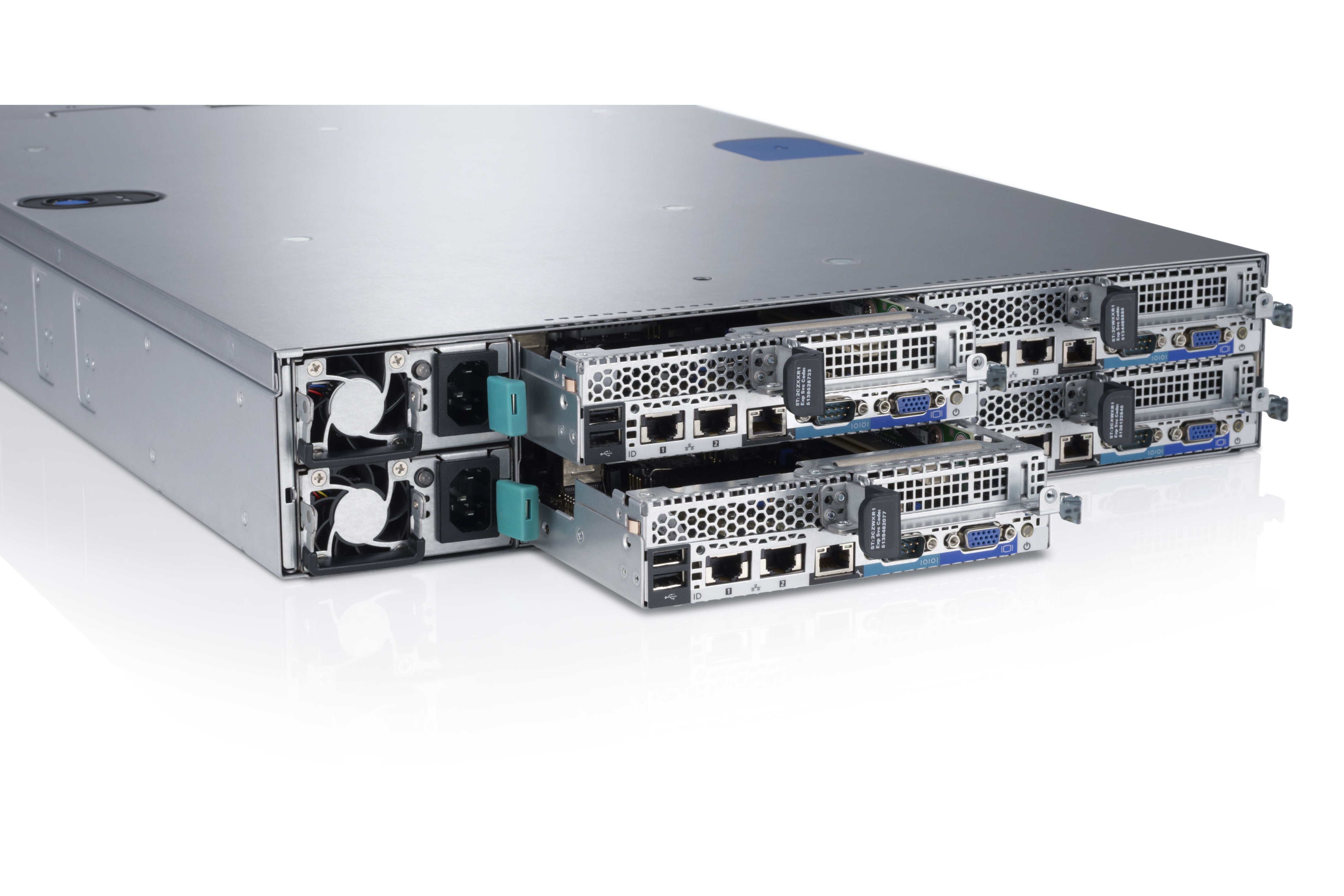
Dell PowerEdge C6220 rear
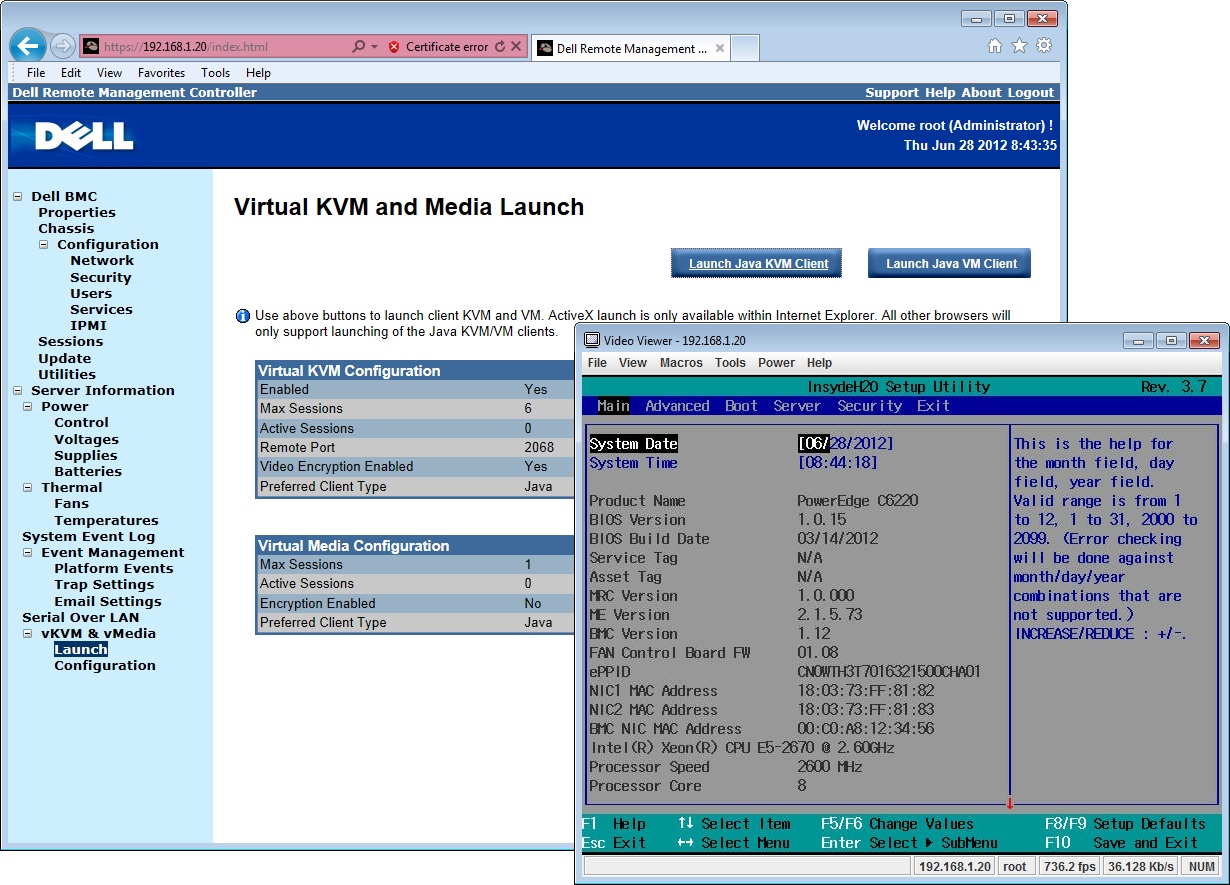
Dell PowerEdge C6220 - Node remote control
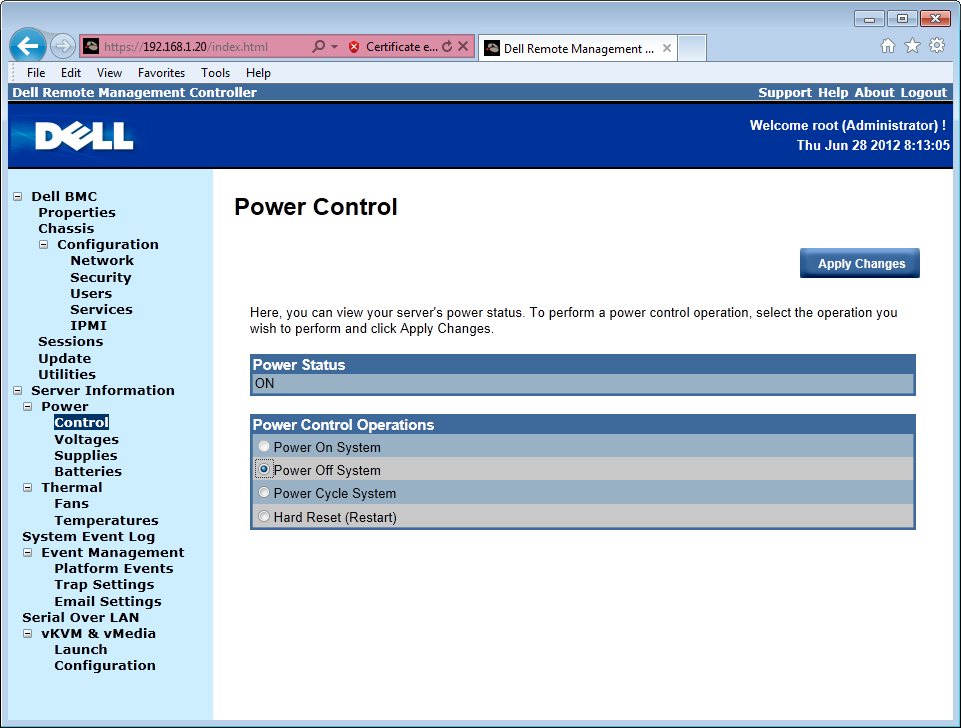
Dell PowerEdge C6220 - Power controls
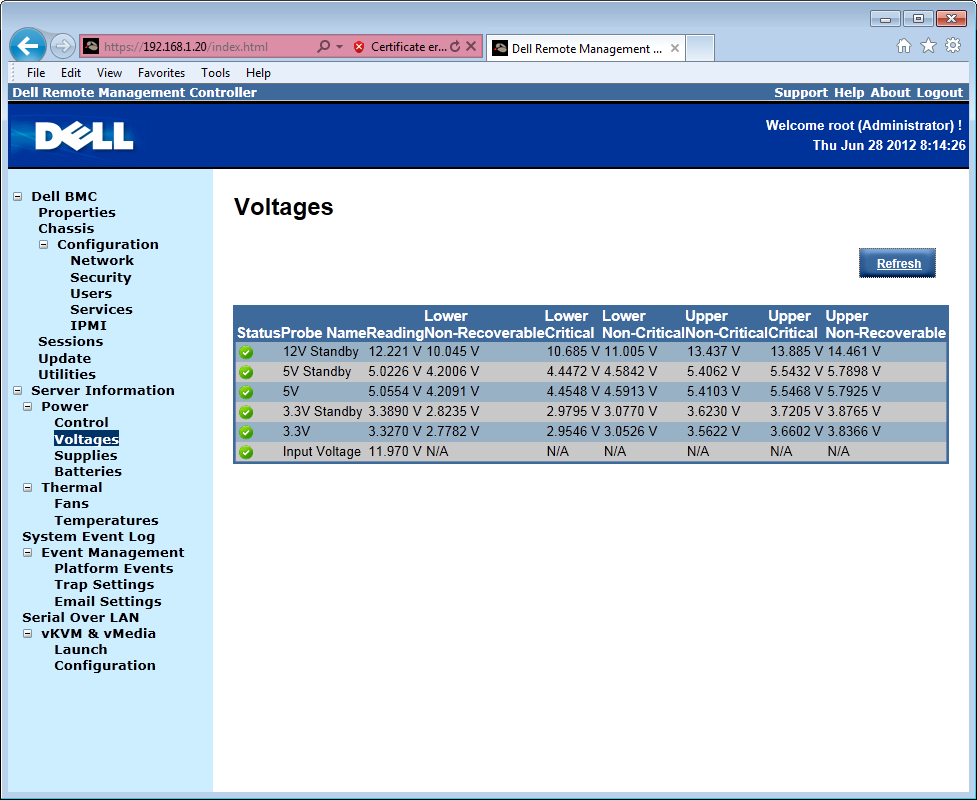
Dell PowerEdge C6220 - IPMI controller
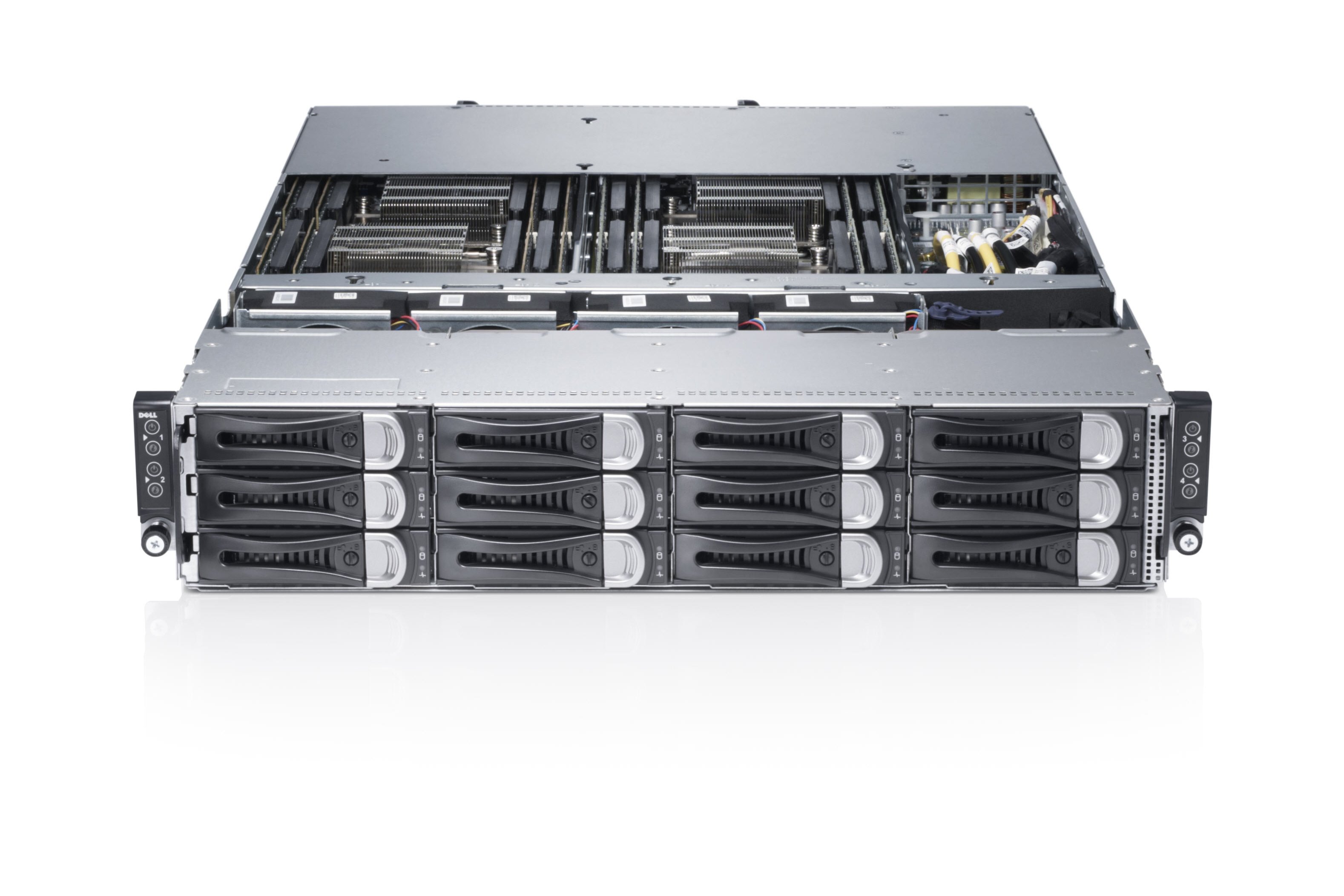
Dell PowerEdge C6220
Dell's C-Series of PowerEdge servers are used in large datacentres where power consumption and cooling are higher priorities pure performance.
Aimed at markets such as cloud hosting providers, the C6220 offers four completely independent, hot-swappable server nodes. The chassis also accepts a pair of dual-height nodes which have two PCI-e expansion slots.
The range has always had a high processing density and the latest PowerEdge C6220 crams four Xeon E5-2600 servers into a low profile 2U form factor.
The four nodes are accessed at the rear where each one provides dual Gigabit, IPMI, pairs of USB2, VGA and serial ports. They're easy enough to remove by releasing a small locking tab and sliding them out rearwards.

The four hot-swap server nodes are completely independent and have their own set of ports
Improved thermal design
The older PowerEdge C6100 could only support CPUs with a maximum TDP of 95W. With the C6220, Dell has rejigged the node's thermal design so the system can cope with TDPs up to 135W.
This means the entire range of E5-2600 Xeons is supported right up to the high performance 2.9GHz, 8-core E5-2690. The review system packs in a good processing density for the price as each node was supplied with dual 2.6GHz E5-2670 Xeons.
Memory options are more limited as each node has 16 DIMM sockets as opposed to the 24 sockets found in standard Xeon E5 servers. It also currently supports 16GB 1600MHz RDIMMs so maximum capacity per node is 256GB. LR (load reduced) DIMMs will not be supported but Dell aims to have 32GB RDIMM certified soon.

The node's IPMI controller offers a comparatively basic set of remote monitoring features
Get the ITPro daily newsletter
Sign up today and you will receive a free copy of our Future Focus 2025 report - the leading guidance on AI, cybersecurity and other IT challenges as per 700+ senior executives
Dave is an IT consultant and freelance journalist specialising in hands-on reviews of computer networking products covering all market sectors from small businesses to enterprises. Founder of Binary Testing Ltd – the UK’s premier independent network testing laboratory - Dave has over 45 years of experience in the IT industry.
Dave has produced many thousands of in-depth business networking product reviews from his lab which have been reproduced globally. Writing for ITPro and its sister title, PC Pro, he covers all areas of business IT infrastructure, including servers, storage, network security, data protection, cloud, infrastructure and services.
-
 ‘Phishing kits are a force multiplier': Cheap cyber crime kits can be bought on the dark web for less than $25 – and experts warn it’s lowering the barrier of entry for amateur hackers
‘Phishing kits are a force multiplier': Cheap cyber crime kits can be bought on the dark web for less than $25 – and experts warn it’s lowering the barrier of entry for amateur hackersNews Research from NordVPN shows phishing kits are now widely available on the dark web and via messaging apps like Telegram, and are often selling for less than $25.
By Emma Woollacott Published
-
 Redis unveils new tools for developers working on AI applications
Redis unveils new tools for developers working on AI applicationsNews Redis has announced new tools aimed at making it easier for AI developers to build applications and optimize large language model (LLM) outputs.
By Ross Kelly Published
-
 Google layoffs continue with "hundreds" cut from Chrome, Android, and Pixel teams
Google layoffs continue with "hundreds" cut from Chrome, Android, and Pixel teamsNews The tech giant's efficiency drive enters a third year with devices teams the latest target
By Bobby Hellard Published